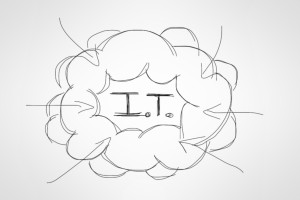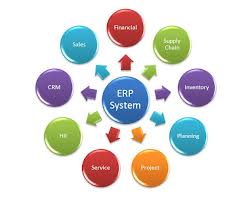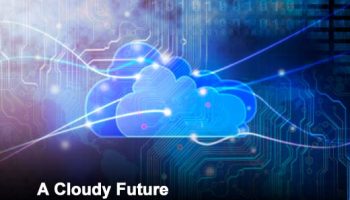 Most businesses use ERP (Enterprise Resource Planning) systems to automate and manage their information flows, transactions, organizational processes and other office functions. There are the likes of Oracle and SAP which support more than half of the ERP users worldwide. However, with the emergence of cloud computing solutions nowadays, ERPs are seen as less agile and more complicated. This makes some enterprise decide to switch to the cloud for their everyday business communication and processing needs. In this article, we will talk about the five ways on how cloud computing can eliminate the use of ERP.
Most businesses use ERP (Enterprise Resource Planning) systems to automate and manage their information flows, transactions, organizational processes and other office functions. There are the likes of Oracle and SAP which support more than half of the ERP users worldwide. However, with the emergence of cloud computing solutions nowadays, ERPs are seen as less agile and more complicated. This makes some enterprise decide to switch to the cloud for their everyday business communication and processing needs. In this article, we will talk about the five ways on how cloud computing can eliminate the use of ERP.
1. Less Financial Costs
While ERPs demand for large investments and high maintenance costs which recur usually yearly or once in three years (depending on the service contract) for the software, hardware, servers and other things to run the system, cloud computing requires less costs as you would only have to pay for the application storage of your files and the service and big room for your servers.
2. Less Complications
You don’t need to train your personnel in running the ERP, and you also don’t need to bother about the service for upgrades and implementations of applications. Cloud computing vendors will have to make sure that everything is in place answering your business requirements. As they are in charge of hosting the cloud infrastructure, they are also responsible for the security of your data and other enhancements. The sole thing you should have is a trusted and speedy internet connection to carry out your operations efficiently through the cloud.
3. Stay Updated
ERPs produce new versions almost every year, and your company has to stay updated with all the new ones to catch up. However, tied to every new version release is the tedious work of also updating your coded customizations accompanying your current software deployment. All current ERP setups will have to be wiped out, and you would have your in-house IT team to start building for the solution from scratch. Because of this, many businesses prefer to stay outdated and don’t bother to acquire future ERP updates. In contrast, with the use of cloud computing solution like NetSuite, cloud computing providers manage to work on the advancements of software without the hassle of re-implementations. So your business can automatically have most updated version without the need for any additional effort.
4. Optimized Performance
Cloud computing is naturally designed to have the perfect score for network performance. This implies that your business would have higher levels of performance in terms of availability. With ERP, you would have to compute and plan for the capacity of data memory and the bandwidth your servers can handle. On the other hand, usage of the cloud is adaptive to your needs. If you need more space, it can adjust dynamically for your resources.
5. Access in Real-time
With the ERP, you can only access the data when you are connected to the company’s server. ERPs mainly rely on the intranet connection line. This means that your staff cannot see accurate information when they are outside the walls of the company during business travels and commuting. When you use a cloud solution, you can have real-time access to your most important and updated files, folders and applications with no surcharge fees. Greater accessibility is no doubt one of the most prominent benefits of cloud computing. You should have to get a trusted provider of the service to ensure strong data security.
Conclusion
Cloud computing is on its rise and dominion! While every business has different needs, it is important to plan whether to use cloud computing or an ERP solution and lay out all the factors for consideration. Realize the cost and savings you can get from the innovations of cloud computing for your workforce.
Author bio:
Vanessa Parks is a Freelance Systems Analyst with 5 Years of solid experience. She has been an advocate of cloud computing and collaboration for improved work efficiency and performance. She also has a passion in dancing, cooking and playing golf.


